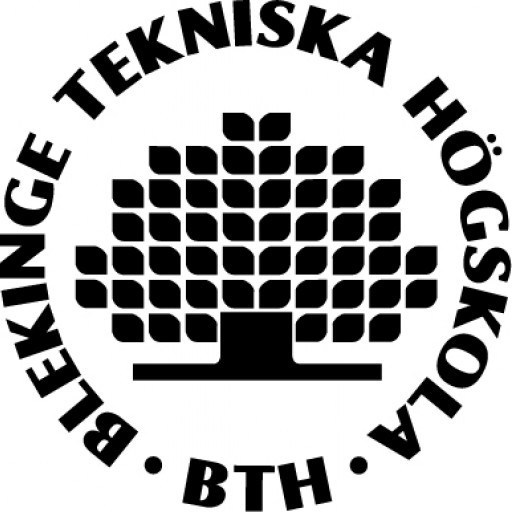Photos of university
The Bachelor of Science in Telecommunications at the University of Cape Town is a comprehensive undergraduate program designed to equip students with the fundamental knowledge and practical skills necessary to excel in the rapidly evolving field of telecommunications. This program provides a holistic education encompassing various aspects of communication technology, network infrastructure, wireless and wired communication systems, signal processing, and information security. Students will engage with core subjects such as digital communications, networking principles, telecommunications systems design, and data transmission, gaining a solid foundation in both theoretical concepts and real-world applications.
Throughout the course of study, students will explore emerging technologies including mobile communications, broadband networks, satellite communication, and Internet of Things (IoT) applications. The curriculum emphasizes practical training through laboratory work, project-based learning, and industry internships, ensuring graduates are well-prepared to meet the demands of employers in academia, industry, and government sectors. Specialization options enable students to focus on specific areas like wireless communications, optical fiber systems, or telecommunications policy and management.
The program also aims to foster innovation and critical thinking, encouraging students to develop solutions to current telecommunications challenges while considering ethical, legal, and social implications of emerging technologies. Collaboration with industry partners and participation in research initiatives provide valuable exposure and networking opportunities. Graduates of this program will be equipped to contribute to the development of telecommunications infrastructure, improve communication networks, and drive technological advancement in South Africa and beyond. With a focus on both technical proficiency and professional skills, the Bachelor of Science in Telecommunications prepares students for successful careers in technology development, network operations, telecommunications consultancy, and policy formulation, among other fields.
This degree requires the student to take a selection of courses that together comprise at least 120 SAQA credits. A research mini-dissertation (that counts 60 SAQA credits needs to be taken as well).
| Course Number | Title | NQF Credits | HEQSF Level |
| EEE5004Z | Minor Dissertation | 60 | 09 |
| EEE5135Z | Information Theory & Error Control Coding | 20 | 09 |
| EEE5136Z | Statistical Signal Theory | 20 | 09 |
| EEE5108Z | Advanced Engineering Mathematics | 20 | 09 |
| Elective courses | 60 | 09 | |
| Total credits | 180 | 09 |
Elective Courses
Select courses to the value of at least 60 credits
| Course Number | Title | NQF Credits | HEQSF Level |
| EEE5032Z | Digital Communication Systems | 20 | 09 |
| EEE5140Z | Software‐Defined Radio | 20 | 09 |
| EEE5137Z | Optical Communication Systems | 20 | 09 |
| EEE5121Z | Microwave Components and Antennas | 20 | 09 |
| EEE5122F | Computational Electronics I | 20 | 09 |
| EEE5138Z | Broadband Communication Networks | 20 | 09 |
| EEE5139Z | Wireless Data Network Convergence | 20 | 09 |
| EEE5033Z | Advanced Topics in Communications & Networks | 12 | 09 |
| EEE5034Z | Special Topics in Electrical Engineering | 8* | 09 |
*Please note that courses EEE5033Z and EEE5034Z will meet a single 20‐credit requirement and must be taken concurrently when selected.
- Certified copies of official academic transcripts in ENGLISH (full transcripts for each tertiary institution attended)
- Certified copies of degree certificates in ENGLISH (for each tertiary institution attended where applicable)
- Applicants from universities situated in non-English speaking countries: TOEFL/IELTS certificate OR letter from previous tertiary institution stating “English as medium of instruction” for the programme
- Curriculum vitae (include work experience)
- A recent score (obtained within 3 - 5 years before application for admission) of at least 570 (paper-based test) or 230 (computer-based test) on the Test of English as a Foreign Language (TOEFL)
- A recent overall band score of 7.0 (with no individual element of the test scoring below 6.0) on the International English Language Testing System (IELTS).
- OR, noting that this may only be written at certain designated venues within South Africa, a score of at least 65% on the university's Placement Test in English for Educational Purposes (PTEEP).
Scholarships
- International & refugee scholarships
- Merit awards
The Bachelor of Science in Telecommunications at the University of Cape Town is a comprehensive undergraduate program designed to equip students with the essential knowledge and technical skills required for the rapidly evolving telecommunications industry. The curriculum integrates principles of electrical engineering, computer science, and information technology, providing a multidisciplinary approach to the study of communication systems. Students are introduced to fundamental topics such as digital signal processing, network architectures, wireless communication, fiber optics, and cybersecurity, ensuring a well-rounded understanding of modern telecommunications infrastructures.
Throughout the program, students gain practical experience through laboratory sessions, project-based learning, and industry internships, which prepare them for real-world challenges in telecommunications environments. Emphasis is placed on both theoretical foundations and application-driven skills, enabling graduates to design, implement, and manage complex communication networks. The program also covers emerging areas such as the Internet of Things (IoT), mobile communications, and broadband access technologies, aligning with current industry trends and future developments.
The faculty comprises experienced academics and industry practitioners who bring relevant expertise and foster research and innovation. Collaboration with telecommunications companies and technology firms offers students exposure to practical scenarios and career opportunities. Graduates of this program are equipped to pursue careers in network engineering, systems analysis, telecommunication management, and research and development sectors.
The degree typically spans three years of full-time study, with opportunities for specialization or elective modules based on individual interests and industry requirements. The program adheres to the university’s high standards of academic excellence and aims to produce graduates capable of contributing significantly to the advancement of telecommunications technology globally and locally. Students are also encouraged to participate in seminars, conferences, and technical workshops to stay updated with the latest advancements in the field. Overall, the Bachelor of Science in Telecommunications offers a rigorous and dynamic educational pathway for aspiring telecommunications professionals seeking to make an impact in a connected world.






